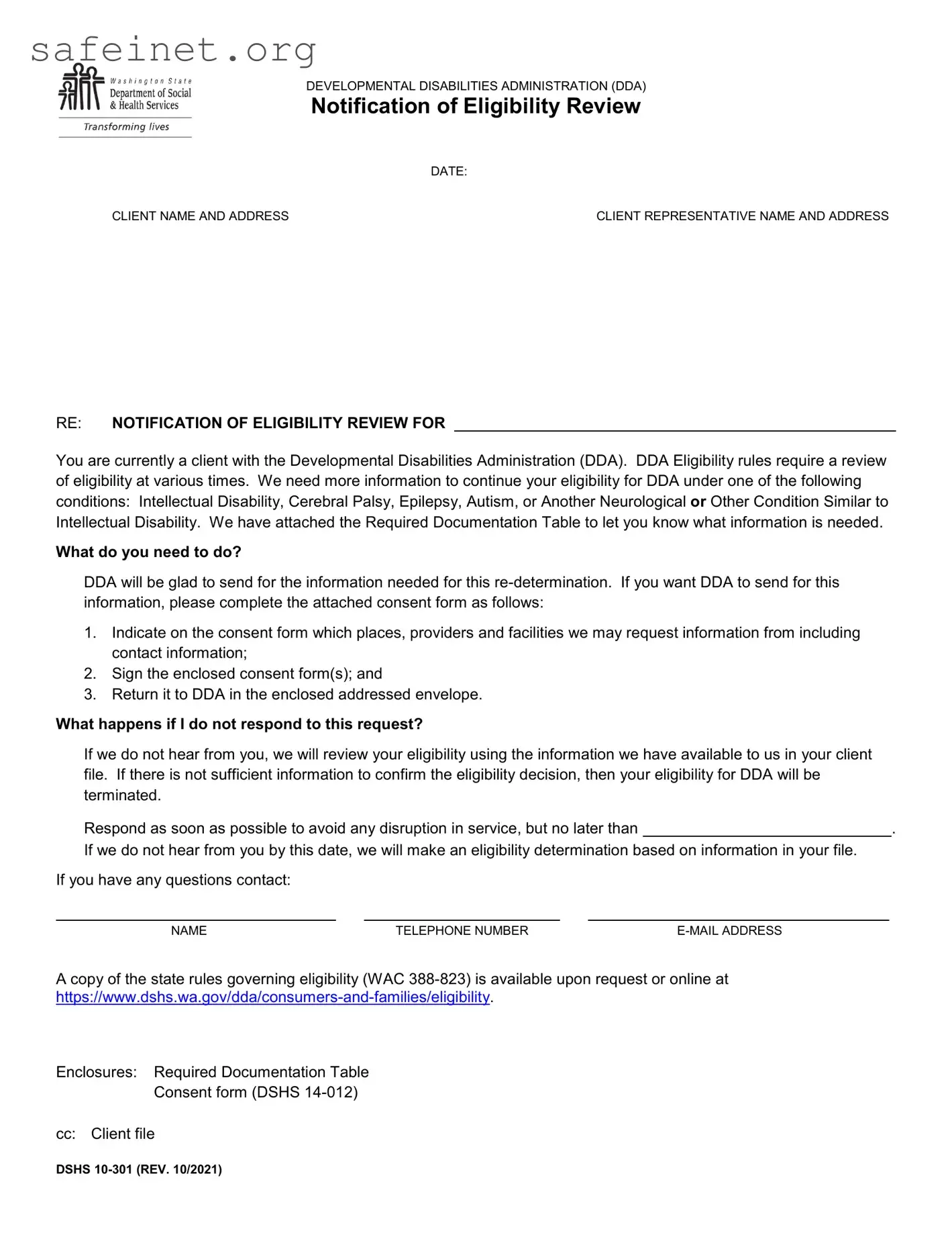DISABILITY CONDITION |
|
DIAGNOSIS |
DIAGNOSTICIAN |
OTHER RECORDS |
Intellectual Disability |
|
Intellectual Disability |
A Licensed Psychologist, Washington |
Full Psychological report including a Full Scale IQ score of more |
|
|
|
Certified School Psychologist or other |
than two standard deviations below the mean and adaptive skills |
|
|
|
school psychologist certified by the |
test score of more than two standard deviations below the mean |
|
|
|
National Assoc. of School |
completed within the last 36 months. |
|
|
|
Psychologists |
|
|
|
|
|
|
Cerebral Palsy |
|
Cerebral Palsy |
Licensed Physician |
Onset prior to age three (3) and information supporting the need |
|
|
Quadriplegia |
|
for daily direct physical assistance in two or more areas |
|
|
Hemiplegia |
|
(toileting, bathing, eating, dressing, mobility, or communication). |
|
|
|
|
|
|
Diplegia |
|
|
|
|
|
|
|
Epilepsy |
|
Epilepsy or |
Board Certified Neurologist |
Diagnosis based on medical history and neurological testing, |
|
|
Seizure disorder |
|
confirmation from physician or neurologist of uncontrolled and |
|
|
|
|
ongoing or recurring seizures, and adaptive skills test showing |
|
|
|
|
substantial limitations in adaptive functioning of more than two |
|
|
|
|
standard deviations below the mean. |
|
|
|
|
|
Autism |
|
Autism or Autistic Disorder |
A Licensed Psychologist, a Licensed |
Full evaluation per DSM-IV-TR meeting all diagnostic criteria, |
(per DSM-IV-TR) |
|
Per 299.00 in DSM-IV-TR |
Physician or ARNP associated with an |
evidence of delay or abnormal functioning prior to age five (5) in |
|
|
|
autism center, developmental center, |
social, language, communication skills or symbolic or |
|
|
|
or center of excellence, or a Board |
imaginative play, and adaptive skills test showing substantial |
|
|
|
Certified: Neurologist, Psychiatrist, or |
limitations in adaptive functioning of more than two standard |
|
|
|
Developmental and Behavioral |
deviations below the mean. |
|
|
|
Pediatrician |
|
|
|
|
|
|
Autism Spectrum |
|
Autism Spectrum Disorder |
A Licensed Psychologist, a Licensed |
Full evaluation per DSM-V meeting all diagnostic criteria, |
Disorder |
299.00 |
Physician or ARNP associated with an |
evidence of delay or abnormal functioning prior to age five (5), |
(per DSM-5) |
|
Per DSM-5 |
autism center, developmental center, |
adaptive skills test showing substantial limitations in adaptive |
|
|
|
or center of excellence, or a Board |
functioning of more than two standard deviations, and FSIQ of |
|
|
|
Certified: Neurologist, Psychiatrist, or |
one standard deviation or more below the mean. |
|
|
|
Developmental and Behavioral |
|
|
|
|
Pediatrician |
|
|
|
|
|
|
Another Neurological |
|
Neurological or chromosomal |
Licensed Physician |
Full Scale IQ score of more than 1.5 standard deviations below |
or Other Condition |
|
disorder known to cause |
|
the mean and adaptive skills test showing substantial limitations |
Similar to Intellectual |
|
intellectual and adaptive skills |
|
in adaptive functioning of more than two standard deviations |
Disability |
|
deficits |
|
below the mean completed within the last 36 months. |
|
|
|
|
|
Note: This form is a general guide only and DDA may require additional information or assessments. This documentation is the first step in determining eligibility. DDA eligibility is determined per WAC Chapter 388-823.


